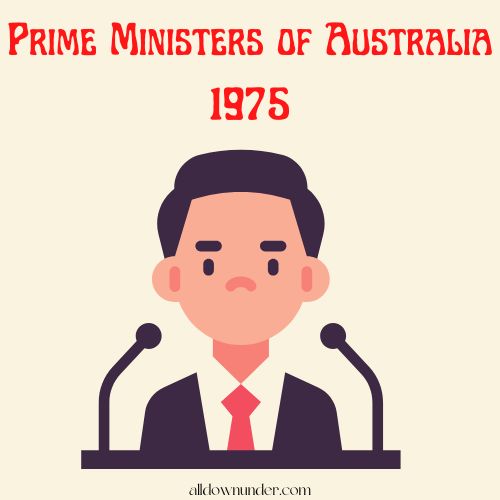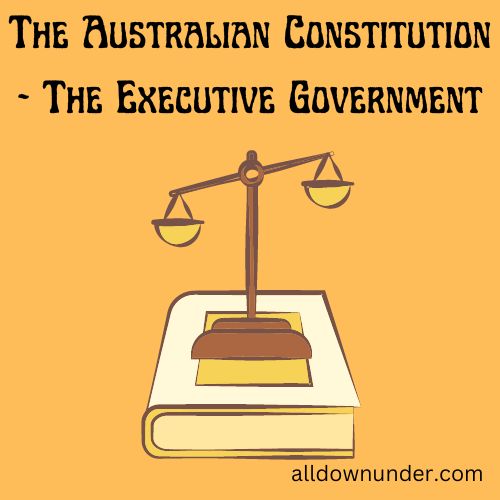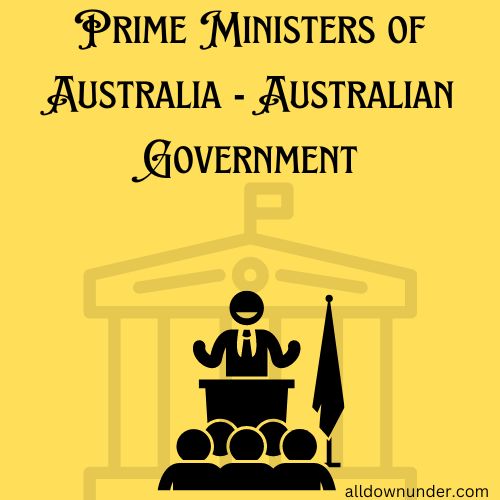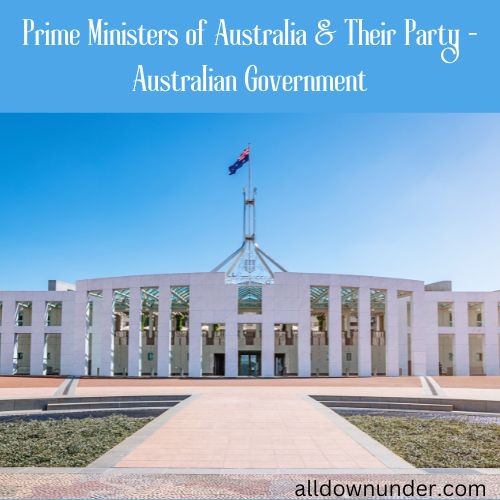See also Australian Prime Ministers and Their Party
What the letters after their names mean (postnominals)
Present – 1975 1975 – 1941 1941 – 1914 1914 – 1901

Prime Minister. He resigned in 1903
to help found Australia’s High Court.
The Prime Minister of Australia is the head of government (aka the most powerful person in Australia). They are elected by the Australian population and usually serve a term of three years.
The leader of the coalition or party which has the most seats in the Federal House of Representatives is appointed by the Governor-General to be the Prime Minister.
Listed in this section is information about the Prime Ministers of Australia. You’ll find some links at the bottom of this page to other websites with additional information on this topic.
Strange Way to Number Prime Ministers
Since 1901 Australia has had over 30 terms of Prime Ministers. However, there are only 28 people who have held the office. Although Rudd was the 26th Prime Minister taking office before Julia Gilliard (27th), he is still the 26th Prime Minister after he succeeded her in 2013.
Prime Ministers — present to 1975
| 29 | Malcolm Bligh Turnbull 24 October 1954 – | period in office term of office political party age first in office | 15 Sept 2015 – present Liberal 60 | ||
| 28 | Anthony John “Tony” Abbott 4 November 1957 – |  | period in office term of office political party age first in office | 18 Sept 2013 – 14 Sept 2015 1 year, 11 months, 14 days Liberal 55 | |
| * | Kevin Michael Rudd 21 September 1957 – |  | period in office term of office political party age first in office | 27 June 2013 – 18 Sept 2013 0 years, 2 months, 22 days Labor 55 | 5 Y 9 M 14 D |
| * | Julia Eileen Gillard 29 September 1961 – |  | period in office term of office political party age first in office | 17 July 2010 – 27 June 2013 2 years, 11 months 10 days Labor 48 | |
| 27 | Julia Eileen Gillard 29 September 1961 – |  | period in office term of office political party age first in office | 24 June 2010 – 17 July 2010 0 years, 23 days Labor 48 | |
| 26 | Kevin Michael Rudd 21 September 1957 – |  | period in office term of office political party age first in office | 3 Dec 2007 – 24 June 2010 2 years, 6 months, 21 days Labor 50 | |
| 25 | John Winston Howard 26 July 1939 – |  | period in office term of office political party age first in office | 11 Mar 1996 – 3 Dec 2007 11 years, 8 months, 23 days Liberal 56 | 11 Y 8 M 23 D |
| 24 | Paul John Keating 18 Jan 1944 – |  | period in office term of office political party age first in office | 20 Dec 1991 – 11 Mar 1996 5 years, 3 months, 22 days Labor 47 | 13 Y 0 M 0 D |
| 23 | Robert James Lee Hawke AC 9 Dec 1929 – |  | period in office term of office political party age first in office | 11 Mar 1983 – 20 Dec 1991 8 years, 9 months, 10 days Labor 53 | |
| 22 | John Malcolm Fraser PC, CH (later AC) 21 May 1930 – |  | period in office term of office political party age first in office | 11 Nov 1975 – 11 Mar 1983 7 years, 4 months Liberal 44 | 7 Y 4 M 0 D |
Compulsory Voting
Voting in Australia’s federal elections has been compulsory since 1925.
* NOTE about numbering
Alfred Deakin is listed as the 2nd Prime Minister although he actually served as Prime Minister 3 different times. Likewise, Andrew Fisher is listed as the 5th Prime Minister even though he also served 3 different times. As a result, Kevin Rudd is listed as the 26th Prime Minister although there were actually over 30 different terms served since the office was created.
In contrast, under the American system, if Deakin had been the President, he would be listed as the 2nd, 5th and 7th President of the United States. (Yes, we know in the USA a person can only be President twice.)
Terms in Office
The start date is the date a prime minister was sworn in by the governor-general. The end date is the date the governor-general accepted a resignation or the date of death.
Labor or Labour?
The spelling ‘labor’ and ‘labour’ were both used by the Australian Labor Party (ALP) until 1912. From that point on the word Labor is the preferred choice.
NOTES about the Nationalist Party
In 1931 the National Party joined with other groups and formed the United Australia Party.



